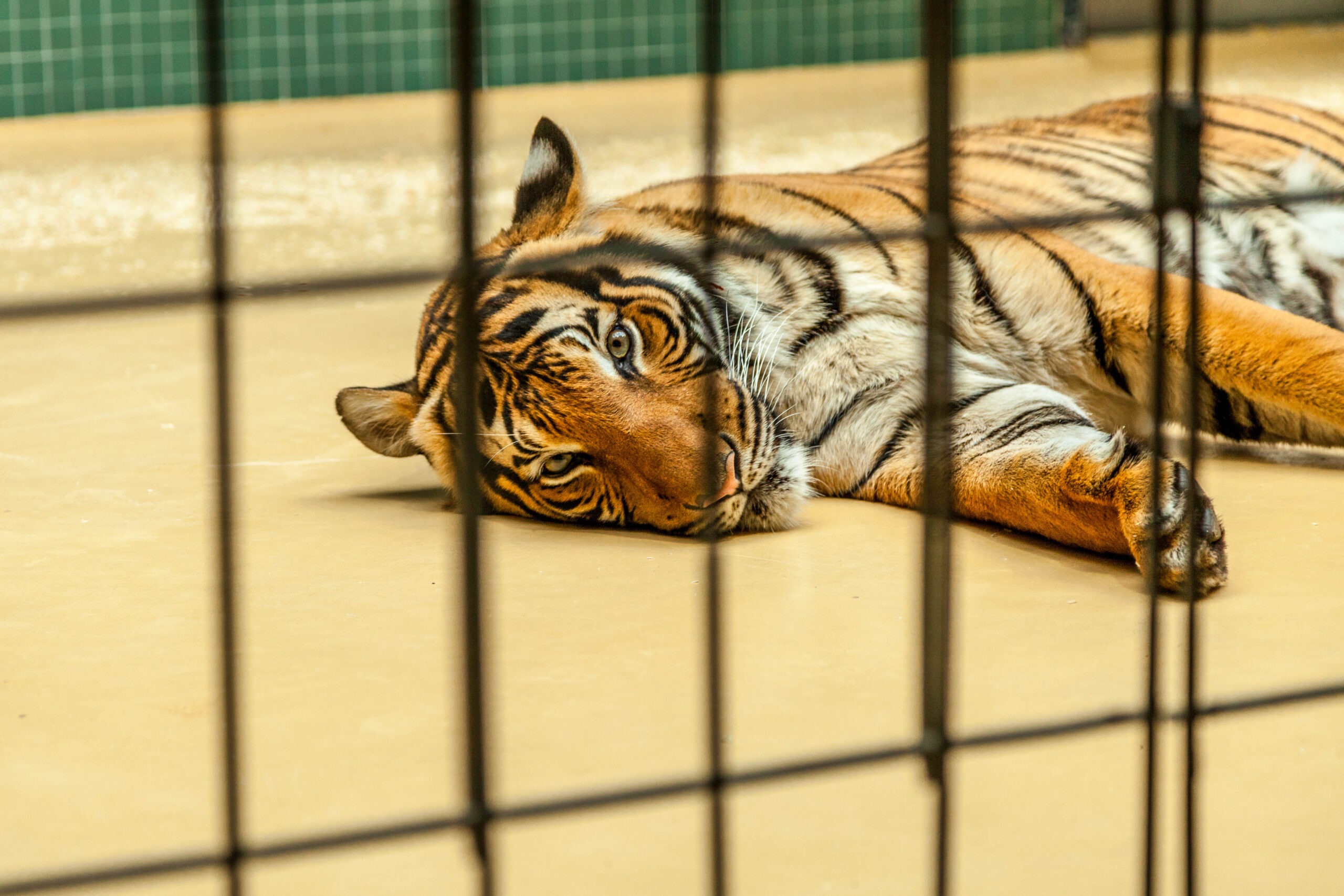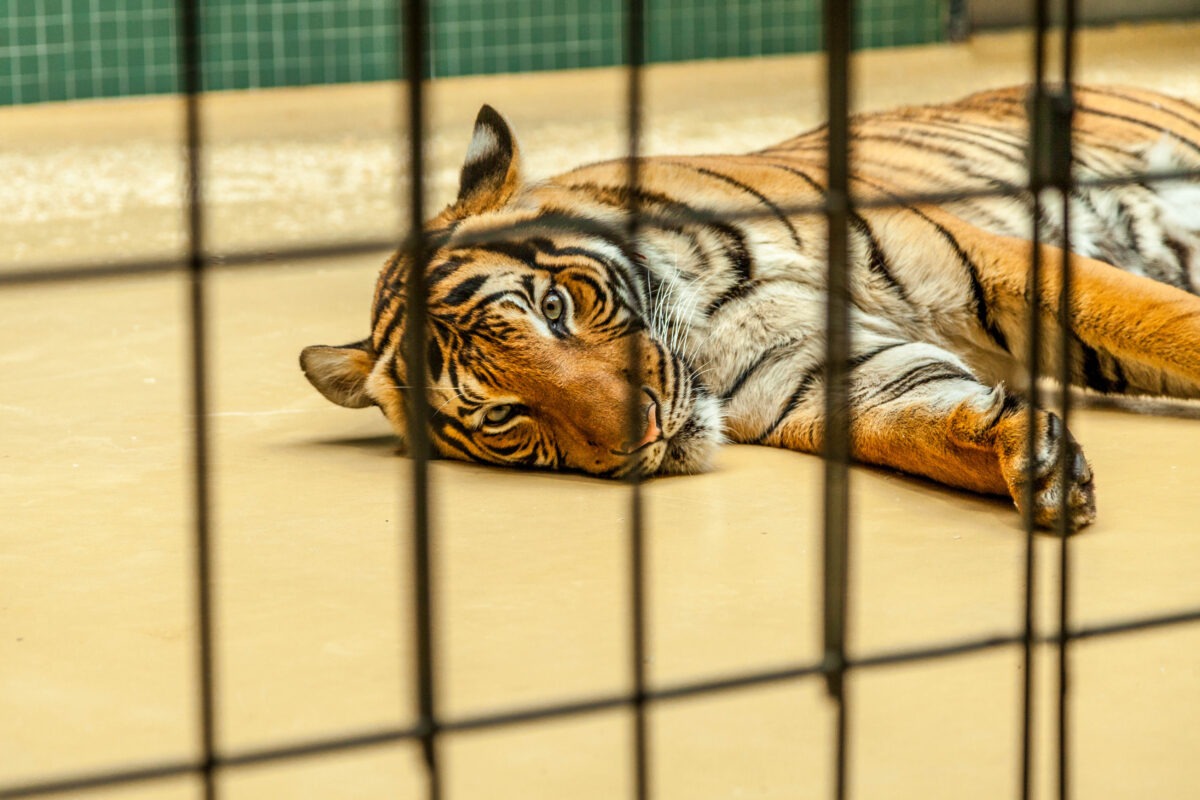South Africa: The Tiger Farming Crisis and Its Global Implications
Renowned for its rich biodiversity and rare wildlife, South Africa is grappling with an alarming issue: the surge in captive tiger farming. This activity poses direct threats to animal welfare while also creating profound environmental and legal ramifications.
South Africa has become the world’s largest exporter of tigers, with a growing number of captive tigers due to declining demand for captive lion farming. According to South Africa’s Department of Forestry, Fisheries, and the Environment, there are 70 tiger farms nationwide, primarily concentrated in the Northwest region. These farms house Bengal tigers, white tigers, and Siberian tigers.

Illustration. (Source: freepik.com)
The global animal welfare organization Four Paws estimates at least 626 captive tigers in South Africa, excluding data from regions like KwaZulu-Natal and Mpumalanga. The actual number is likely much higher, particularly at breeding farms, some of which are reportedly owned by Vietnamese nationals.
The EMS Foundation uncovered, through a Promotion of Access to Information Act (Paia) request, that 40 live tigers were recently exported from South Africa to India. This may represent the largest live tiger shipment ever recorded. According to EMS representatives, this demonstrates the massive scale of South Africa’s tiger farming industry, which continues to expand.
The rise in tiger farming is largely attributed to reduced demand for captive lion farming. Concerns over animal welfare and increased advocacy against the lion industry have driven many farms to shift their focus to tigers, which are not native to South Africa.
A Four Paws report highlights a convoluted network of legal loopholes, fragmented regulations, and criminal organizations involved in tiger trade. These farms cater to global markets, especially in China and Vietnam, where tigers are used for traditional medicine, tiger bone wine, jewelry, décor, and even pets. No part of a tiger is wasted: bones are boiled into glue, skins are processed and dried, and teeth and claws are polished for sale.
The report also exposes significant gaps in South Africa’s regulatory framework. The country lacks a centralized registry to track tiger births, deaths, and trade. Provincial regulations vary widely, with some requiring permits for transport or trade, while others have no such requirements. This fragmented oversight allows criminal groups to exploit legal ambiguities, facilitating the illegal trade of tigers and their parts.
Additionally, the report identifies a vast network of commercial breeders, intermediaries, and traders operating both legally and illegally. Public facilities offering cub-petting experiences are clear indicators of continuous breeding cycles. Captive tigers often endure harsh conditions, including being declawed, crossbred, or exhibiting unnatural behaviors, highlighting their inhumane treatment.
The tiger farming crisis in South Africa has far-reaching global consequences. The rising demand for tiger products fuels illegal poaching in other countries and undermines international trust in South Africa’s conservation efforts.
To address this issue, Four Paws advocates for:
- A Ban on Commercial Tiger Farming: Phasing out all commercial breeding and trade of big cats, including tigers, lions, and leopards, with a complete shutdown of facilities by 2030.
- Strengthened Legal Frameworks: Establishing a centralized database to monitor captive populations, incorporating microchip tracking, DNA registration, and unannounced inspections.
- Streamlined Provincial Regulations: Harmonizing provincial policies to eliminate inconsistencies.
- International Collaboration: Aligning South Africa’s policies with international standards, particularly the Convention on International Trade in Endangered Species of Wild Fauna and Flora (CITES).
- Public Awareness Campaigns: Educating consumers about the devastating impacts of exotic wildlife trade to reduce demand for big cat products.
Source: Daily Maverick








